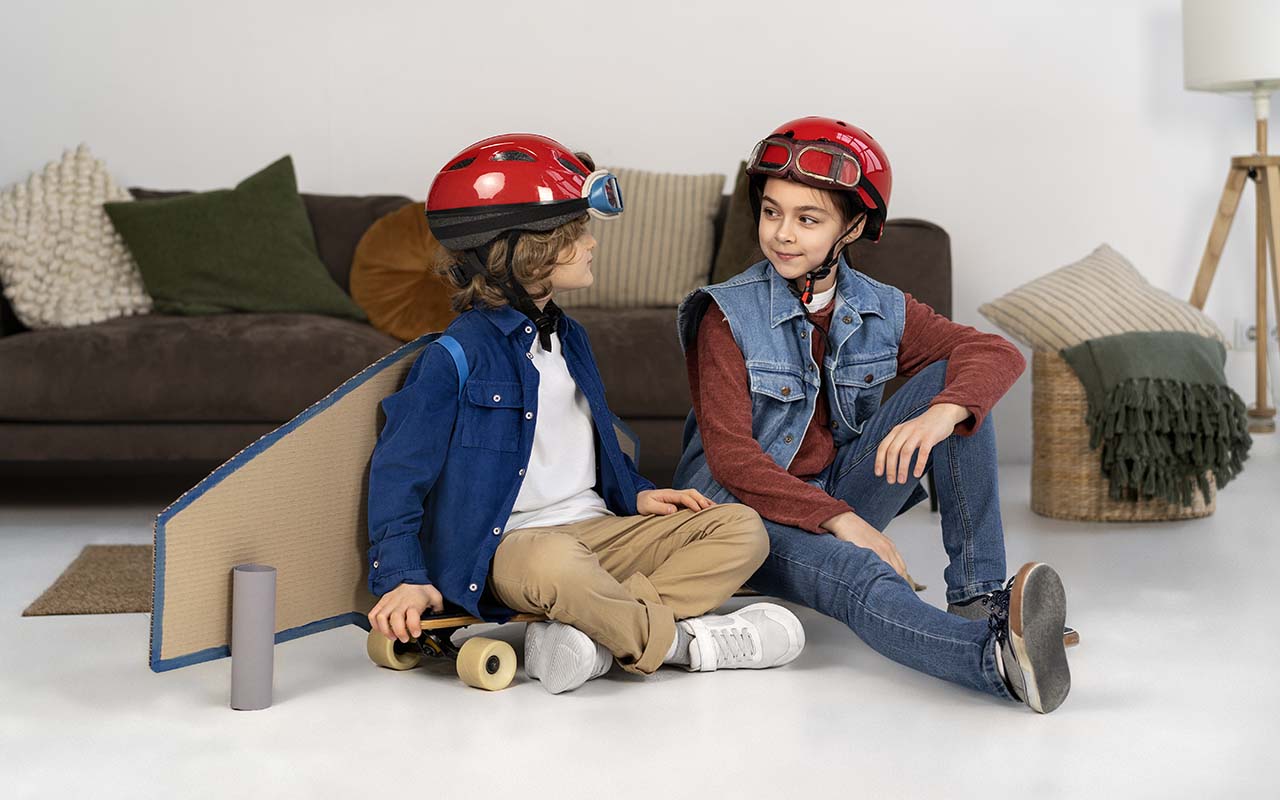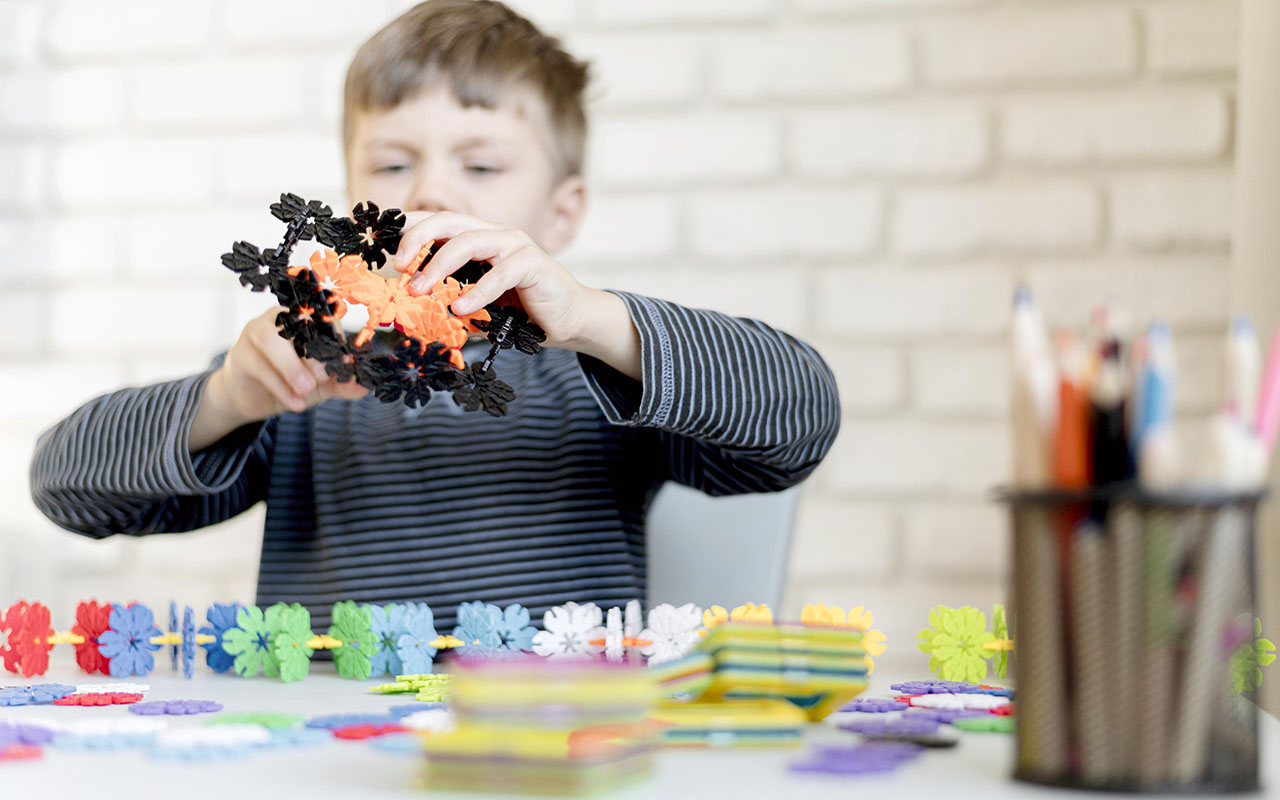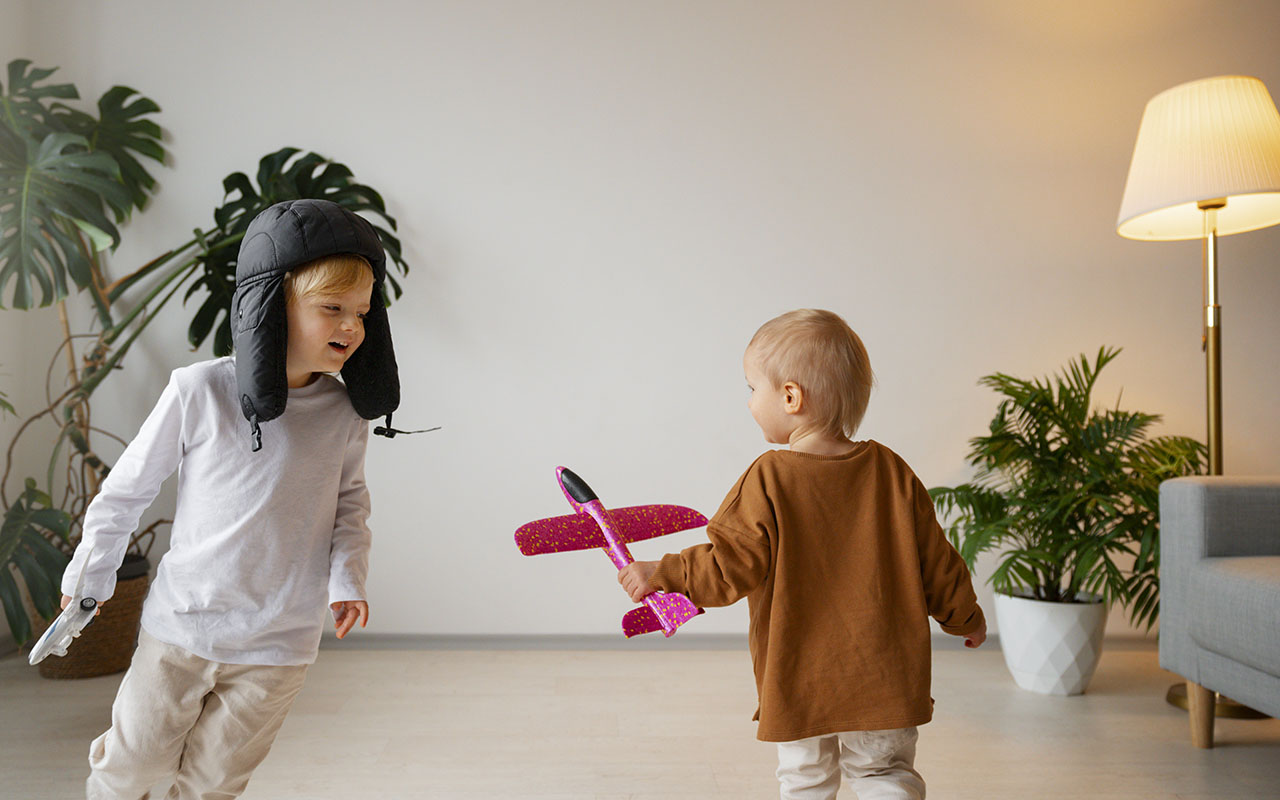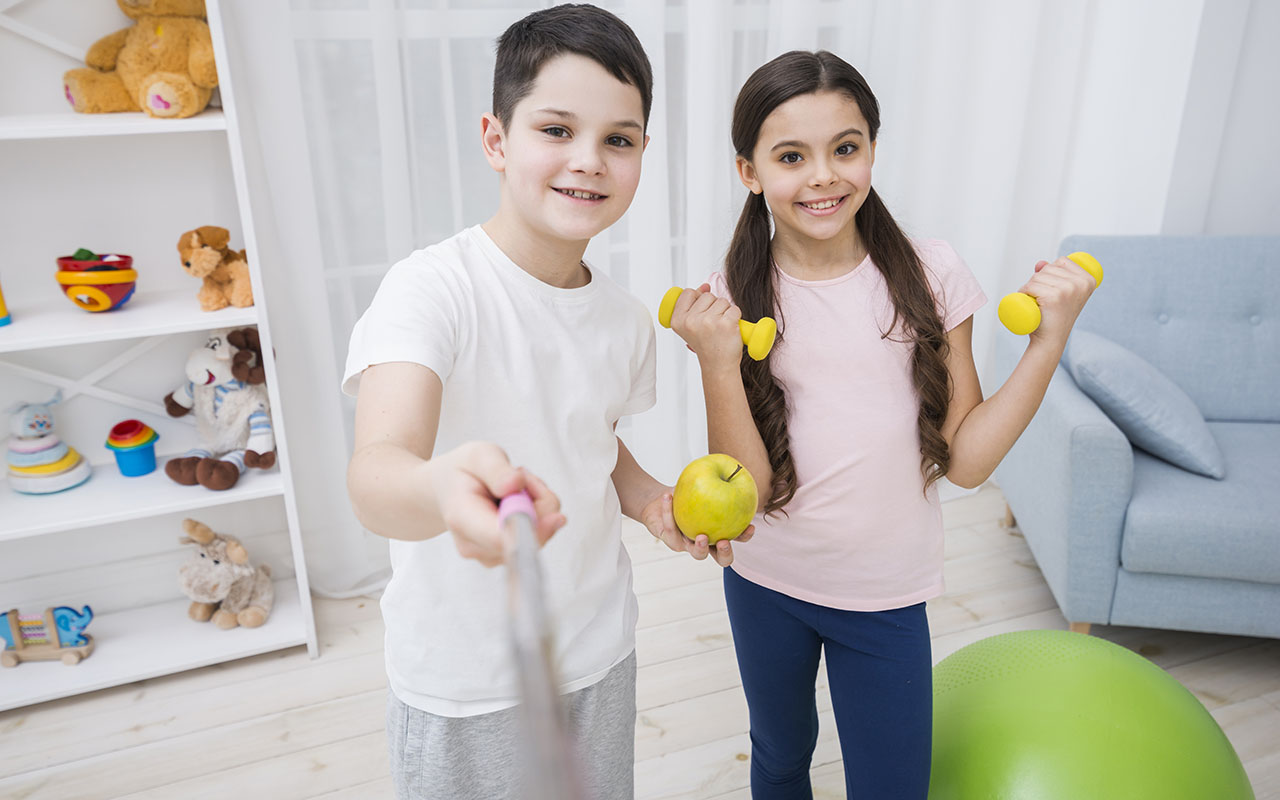
Why Kids Need Physical Activity for
Better Mental Health
In today’s fast-paced world, children are increasingly exposed to stressors that can affect their mental health. From academic pressures to social challenges and the ever-growing influence of technology, it’s easy for kids to feel overwhelmed. These constant demands can lead to heightened anxiety, stress, and even symptoms of depression. For this reason, it’s crucial for parents and caregivers to find ways to support children’s mental well-being. One of the most effective strategies for doing this is through physical activity.
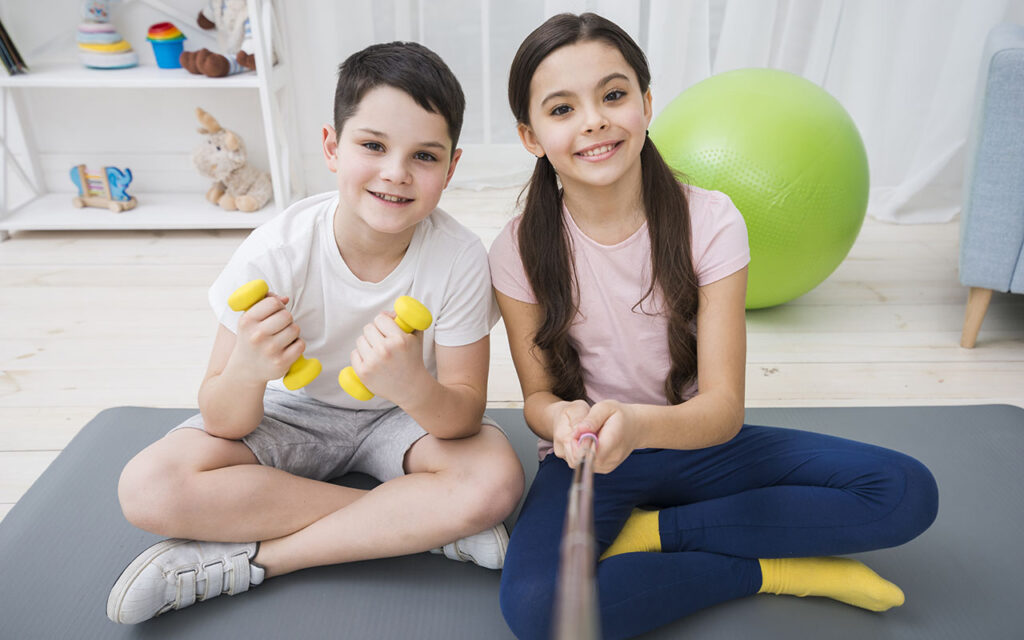
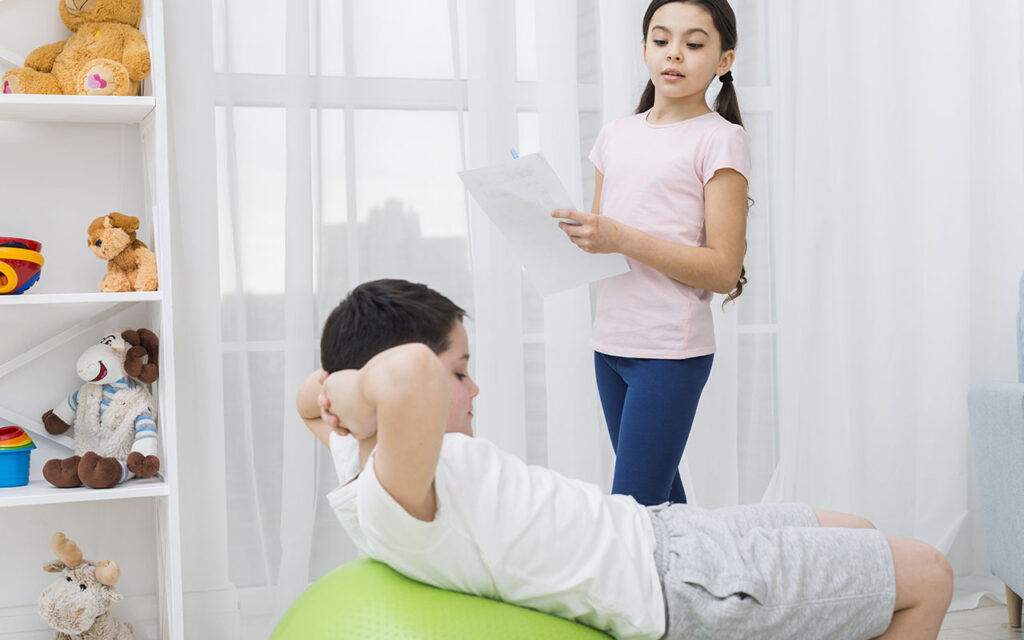
At Fnoy Active, we believe that fostering an active lifestyle can make a profound difference in a child’s mental health. Our foam ball pits offer children a fun, safe indoor play experience that supports both motor skill development and sensory engagement. However, it’s important to look at how physical activity of all types—both indoors and outdoors—can have a significant positive impact on children’s mental well-being. This article delves into the critical role that physical activity plays in reducing stress, improving mood, boosting self-esteem, and supporting emotional regulation in children.
How Physical Activity Impacts Mental Health
Physical activity has long been recognized for its benefits to physical health, but its effects on mental health are just as important. Research consistently shows that regular physical exercise is linked to a host of mental health benefits for children. From reducing anxiety and depression symptoms to improving mood and self-confidence, staying active offers children the tools they need to cope with life’s challenges in a healthy way.
Let’s take a closer look at the specific mental health benefits that physical activity provides for children.
1. Reduces Stress and Anxiety
Just like adults, children experience stress. Whether it’s due to academic pressures, social situations, or family dynamics, stress can have a significant impact on their overall well-being. Physical activity serves as an excellent outlet for releasing built-up stress. When children engage in exercise, their bodies release endorphins, which are often referred to as “feel-good” hormones. These endorphins help reduce feelings of stress and anxiety, promoting a sense of calm and happiness.
Outdoor activities, in particular, are great for stress relief. Whether it’s a game of tag, a run around the playground, or riding bikes, being outside and moving around offers a natural way to reduce anxiety and tension. Exercise lowers the levels of stress hormones, such as cortisol, in the body, which can negatively impact mood if left unchecked. Physical activity allows children to manage their emotions more effectively, making them more resilient in the face of stress.
2. Improves Mood and Behavior
One of the immediate benefits of physical activity is its ability to improve a child’s mood. Regular exercise has been shown to increase the production of serotonin and dopamine, neurotransmitters that regulate mood and promote feelings of well-being. This boost in mood often translates into better behavior, both at home and in school.
Children who are more physically active tend to demonstrate higher levels of concentration, patience, and problem-solving abilities. For children who struggle with attention-deficit/hyperactivity disorder (ADHD) or other behavioral challenges, physical activity can be particularly beneficial. Exercise helps them channel their energy into productive tasks and reduces impulsive behaviors. By incorporating physical activity into a child’s daily routine, you can help them stay more focused, manage their impulses, and behave more positively.
3. Builds Self-Esteem and Confidence
Physical activity plays a profound role in boosting a child’s self-esteem. When kids engage in physical activities and accomplish new skills—whether it’s learning how to ride a bike, mastering a yoga pose, or completing an obstacle course—they gain a sense of accomplishment. This feeling of achievement reinforces their belief in their abilities, which enhances self-confidence.
Group activities, such as team sports, can also help build self-esteem by teaching children about cooperation, teamwork, and resilience. These experiences are valuable life skills that children carry with them as they grow. When children feel competent and proud of their physical abilities, their overall sense of self-worth improves, which directly impacts their mental health. As they develop confidence in their physical skills, they are more likely to take on new challenges and approach life with a positive attitude.
4. Encourages Social Interaction
Physical activity, especially when done in group settings, encourages positive social interaction. Many outdoor games, sports, and physical activities require teamwork, communication, and collaboration. These social experiences can help children build relationships, develop empathy, and feel a sense of belonging.
For children who are shy or experience social anxiety, structured physical activities offer a low-pressure way to engage with peers and make new friends. Being part of a team or participating in group play can boost social confidence and reduce feelings of loneliness or isolation. The bonds children form while playing together are important for their emotional well-being, as these friendships can offer support and companionship.
5. Promotes Better Sleep
Sleep is a critical factor in mental health, and children who are physically active tend to sleep better than those who lead more sedentary lifestyles. Exercise helps regulate the body’s internal clock, known as the circadian rhythm, making it easier for kids to fall asleep and stay asleep.
When children engage in physical activity, they expend energy, which leads to better quality rest at night.
Adequate sleep is directly linked to improved mood, cognitive function, and emotional regulation. A well-rested child is more likely to feel emotionally balanced, handle stress more effectively, and approach challenges with a positive mindset. Incorporating physical activity into your child’s routine not only helps them burn off energy but also promotes better sleep patterns, which are crucial for maintaining good mental health.
6. Supports Emotional Regulation
Children often have big emotions that they may not yet know how to manage. Physical activity helps children learn to regulate their emotions by providing a healthy outlet for expressing feelings like excitement, anger, or sadness. Activities that involve repetitive motions, such as running, swimming, or jumping on a trampoline, are especially effective at helping children self-soothe and manage their emotions.
When kids regularly engage in physical activity, they’re better equipped to handle life’s challenges in a calm and measured way. Exercise helps them release pent-up energy or frustration, allowing them to process their emotions constructively. By teaching children to use exercise as a tool for emotional regulation, parents and caregivers can help foster long-term emotional resilience.
Indoor Play and Mental Health: The Role of Foam Ball Pits
While outdoor activities are fantastic for promoting physical fitness and mental health, indoor play can also contribute significantly to a child’s well-being. During times when outdoor play is limited—whether due to weather, safety concerns, or other factors—indoor activities become essential for keeping children active and engaged. This is where Fnoy Active’s foam ball pits come into play.
Foam ball pits offer more than just fun. They provide children with a safe and engaging way to burn off energy, improve motor skills, and enjoy sensory play. This type of sensory engagement can be particularly beneficial for children with sensory processing issues, as the tactile experience helps them feel grounded and calm. By providing a physical outlet indoors, foam ball pits allow kids to continue reaping the mental health benefits of movement, even when outdoor play isn’t possible.
In addition to promoting physical activity, foam ball pits offer opportunities for social play. Children can interact with siblings, friends, or even parents in a playful, low-pressure environment. This type of social engagement helps build social confidence and emotional resilience, allowing children to practice cooperation and communication skills in a fun and relaxed setting.
Tips for Parents: Encouraging Physical Activity for Mental Health
Here are some practical ways to help your child incorporate physical activity into their daily routine, ensuring they benefit from both the physical and mental health advantages:
- Make Exercise Fun: Find activities that your child enjoys. Whether it’s dancing, playing soccer, or jumping into a foam ball pit, the key is to make exercise feel like play. Children are more likely to stay active if they associate physical activity with fun and enjoyment.
- Set Realistic Goals: Encourage your child to set achievable goals, such as learning a new skill or trying out a different sport. Celebrate their accomplishments to reinforce their self-esteem and motivation.
- Be a Role Model: Children are more likely to stay active if they see their parents engaging in physical activity. Go for family walks, play sports together, or create a home obstacle course to make physical activity a bonding experience.
- Balance Screen Time with Movement: For every hour of screen time, aim to match it with some form of physical activity. This helps create a balance between sedentary and active pursuits, ensuring that your child stays physically and mentally engaged throughout the day.
Incorporate Short - Bursts of Activity: If your child is resistant to long periods of exercise, break it up into shorter bursts throughout the day. A few minutes of jumping jacks, running in place, or even jumping into a foam ball pit can add up and still provide the mental health benefits they need.
Conclusion
Physical activity is essential for both the body and mind. By encouraging children to stay active, you’re not only supporting their physical development but also promoting mental health benefits that can last a lifetime. From reducing stress and anxiety to boosting self-esteem and encouraging positive social interactions, regular exercise plays a crucial role in helping children thrive emotionally.
At Fnoy Active, we’re committed to supporting healthy and happy childhoods, whether through outdoor activities or our foam ball pits, which offer an enjoyable and effective way to keep children moving. By integrating physical activity into your child’s routine, you can help them build resilience, confidence, and emotional well-being.
Whether it’s outside or indoors, with activities like bike riding or playing in a foam ball pit, the goal is to keep your kids moving and engaged for better mental health.

